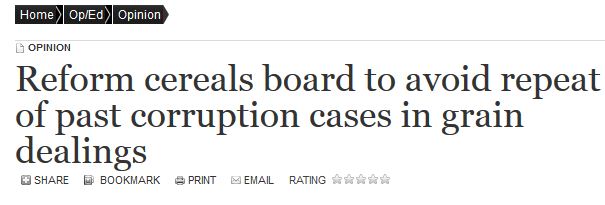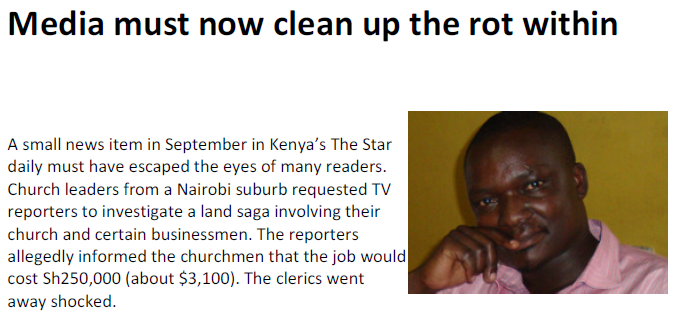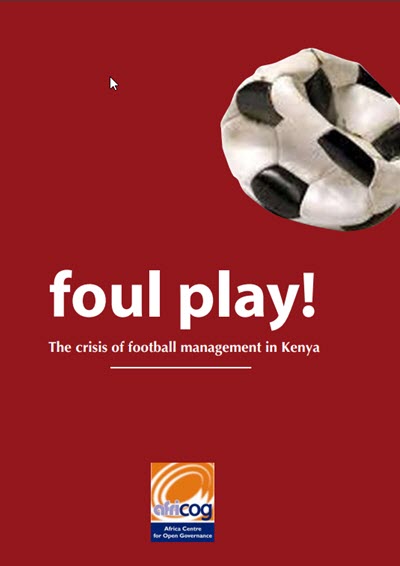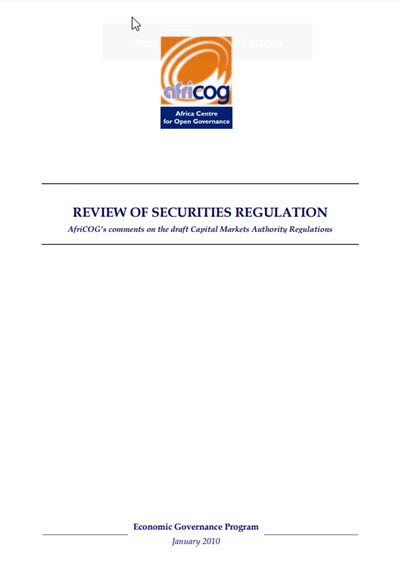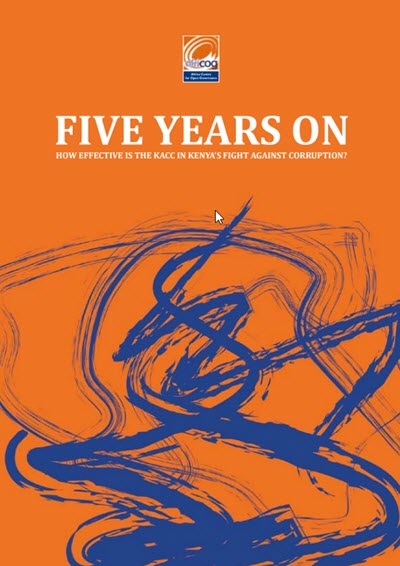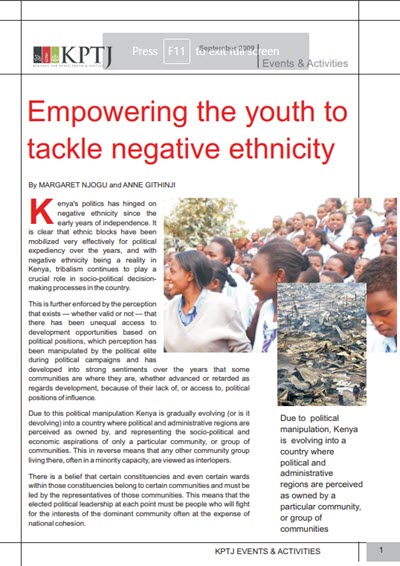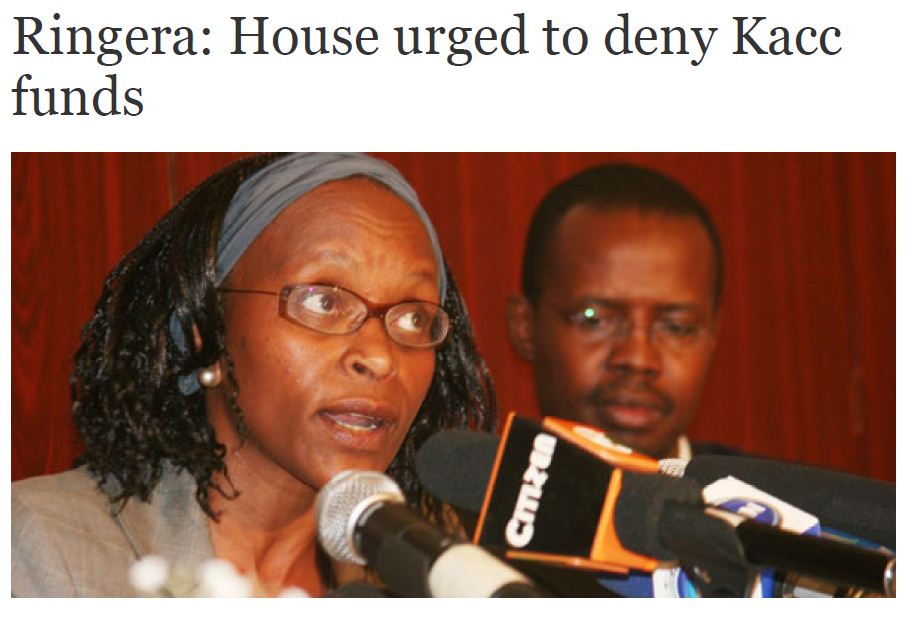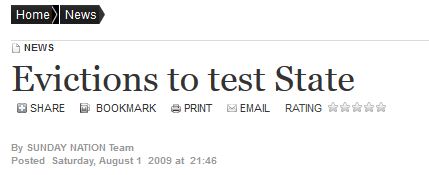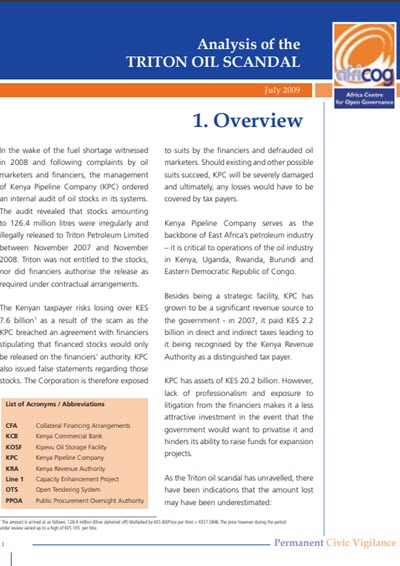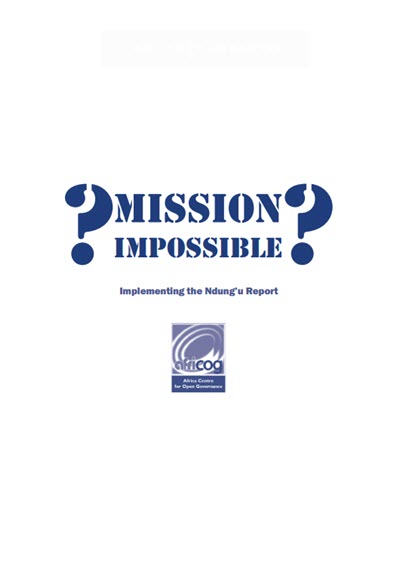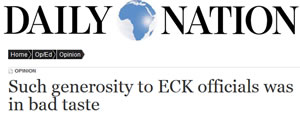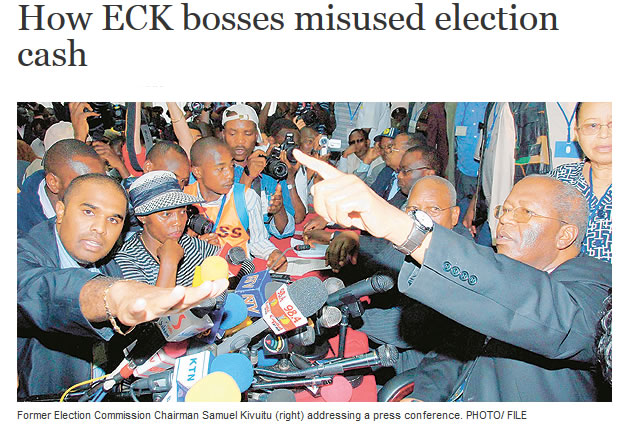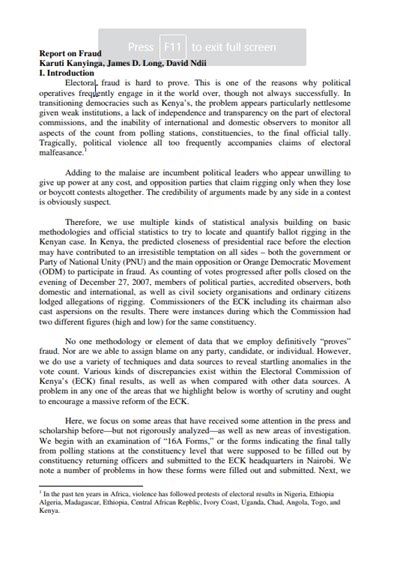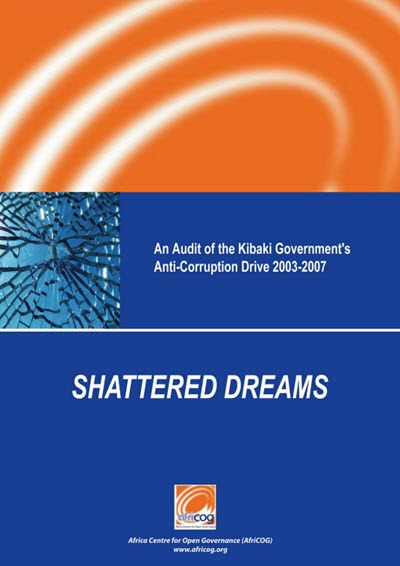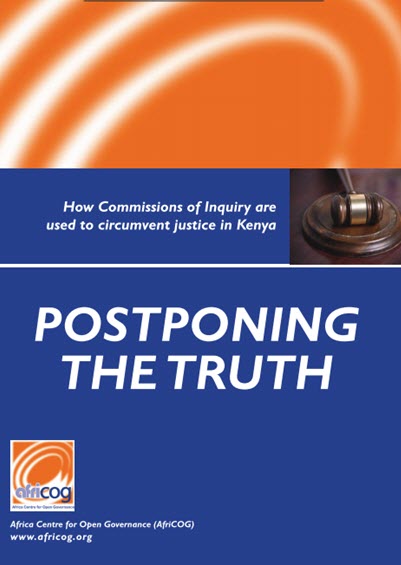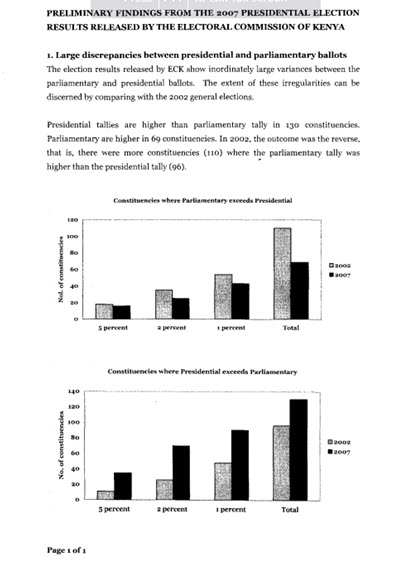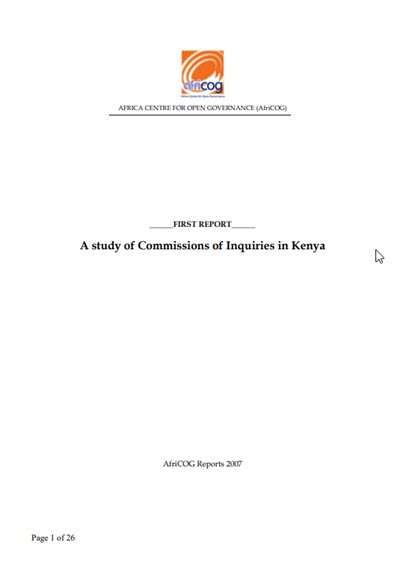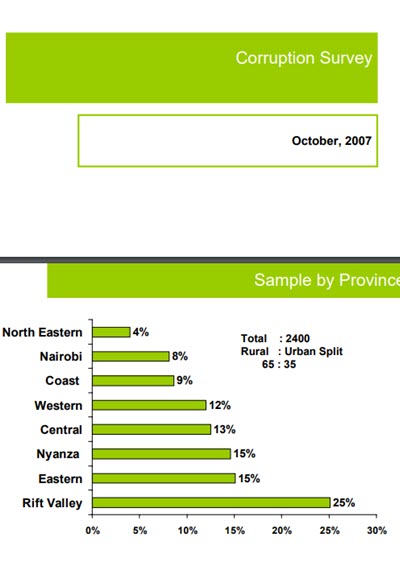Daily Nation, February 8 2011 – Reform cereals board to avoid repeat of past corruption cases in grain dealings
As the reality of yet another drought sets in, fears of a repeat of past cases of mismanagement loom. The post-election violence led to a significant reduction of the area under maize production. This was exacerbated by high prices of farm inputs including fertilisers and fuel and the 1.6 million bag deficit in the Strategic Grain Reserve.
All these factors combined to put the country in a precarious position in the event of famine.
Ironically, similar circumstances are with us today, circumstances that facilitated the infamous maize scam of 2008 that saw the National Cereals and Produce Board (NCPB) sell maize to politically connected companies and individuals at a subsidised price.
The laudable intention then was to reduce the retail price of milled grain for consumers.
However, NCPB decided to sell the maize to middlemen, who in turn sold it to millers at exorbitant prices. This only served to deepen the food crisis as the price of maize flour soared.
The World Food Programme in 2010 predicted that the La Niña weather phenomenon would impact negatively on the October to December short rains, thereby resulting in declining food security levels for up to 1.6 million Kenyans.
The current drought in the arid districts of northern Kenya has again highlighted the government’s lack of disaster preparedness.
It knew that serious consequences would follow the poor rains of the October to December season, yet the authorities seem to have been caught off-guard. Poor planning and grain storage systems have seen famine intensify.
The stage appears set for a repeat of the 2008 maize scandal. A key aspect of the governance weaknesses that facilitated the maize scam was the mixed mandate of the NCPB, which allowed wide discretionary powers, especially those accorded to the minister.
Despite this, no lessons seem to have been learned and the recommendations made to avoid a repeat of the scandal have been ignored.
The government retains extensive discretionary powers over the NCPB and management of the grains sector. This has seen the NCPB’s management structures and operations exposed to political influence, particularly when it is charged with administering subsidised schemes or distributing relief food.
Although KACC recommended disciplinary action against the public officials deemed to have been negligent in their duties, no criminal or administrative proceedings were brought against them.
The permanent secretaries in the relevant ministries were suspended, but were later reinstated. Even the then minister for Agriculture survived a censure motion in Parliament.
Several key politicians and businessmen were investigated in connection with the scandal but no action was taken.
In these circumstances, the importance of improved governance cannot be overstated. It would be foolhardy to expect different results, given that the current situation seems to be a replica of what preceded the 2008 fiasco.
Operations at the National Cereals and Produce Board remain the same, just waiting to provide a loophole to unscrupulous middlemen to make astronomical profits by buying and hoarding maize, only to release it at the height of famine.
The NCPB mandate allows it to engage in commercial activities like any private player in the industry and at the same time carry out certain social responsibilities on behalf of the government.
These include procuring supplies for and managing the Strategic Grain Reserve and emergency relief aid stock.
This mixing of functions makes it difficult to distinguish between SGR, commercial, and famine relief stocks and opens the way for improper dealings.
Before the government implements any new scheme to deal with the upcoming famine or any form of subsidy, the NCPB governance structure should be amended to make it more accountable and transparent to public scrutiny.
Its mandate should also be reformed and its public social duties separated from its commercial functions. Until comprehensive reforms are done, the NCPB will remain prone to manipulation by commercial and political interests.
Mr Wanguhu is a programme officer at the Africa Centre for Open Governance. The opinions contained in this article do not necessarily reflect those of the organisation.
Link to the Article in the Daily Nation
As the reality of yet another drought sets in, fears of a repeat of past cases of mismanagement loom. The post-election violence led to a significant reduction of the area under maize production. This was exacerbated by high prices of farm inputs including fertilisers and fuel and the 1.6 million bag deficit in the Strategic Grain Reserve.
